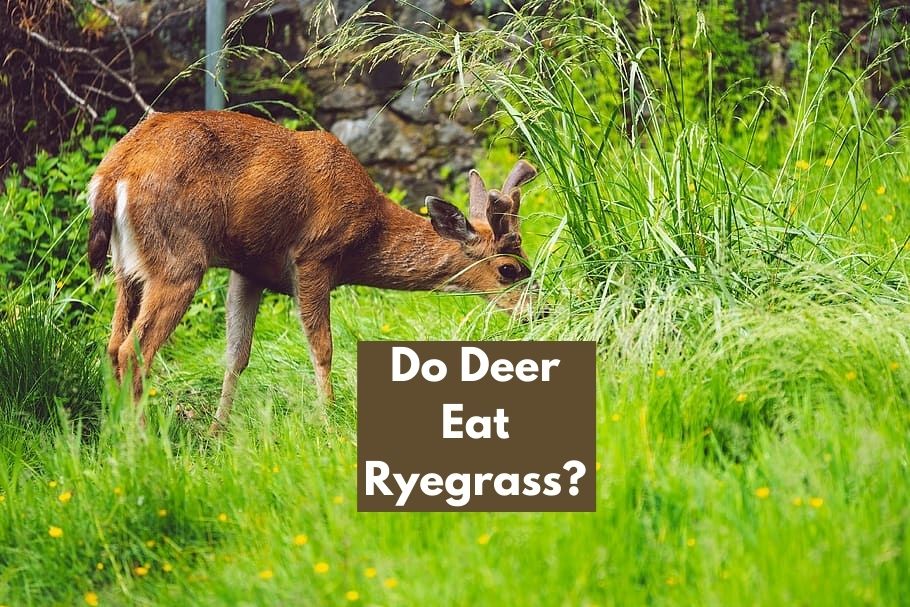There are a lot of myths out there about what deer do and do not eat. One common question is: do deer eat ryegrass?
The answer is yes – deer love to eat ryegrass. Deer are attracted to ryegrass because it’s highly digestible and tasty to them.
Many food plotters choose ryegrass to attract deer because it’s easy to grow, can tolerate a wide variety of soil types, and is very affordable.
Considering that a single deer can eat several pounds of plants each day, you can see how deer eating ryegrass can require having a good amount of space to plant in!
In this article, we’ll discuss the benefits of ryegrass for attracting deer to your food plot.
Why Do Deer Eat Ryegrass?
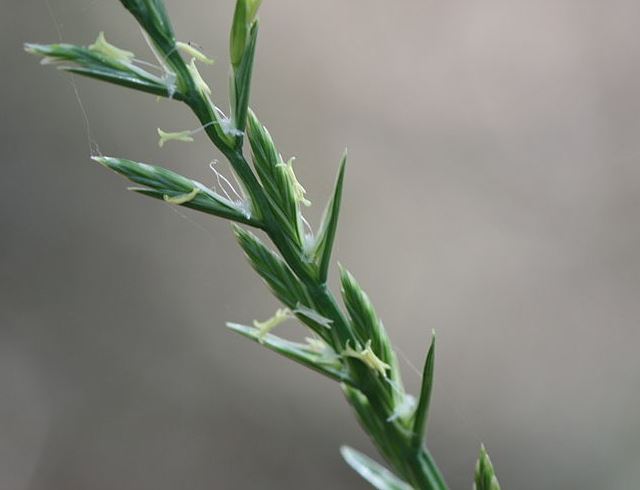
As we covered, deer will eat as much ryegrass as possible when they’ve got the chance.
But why do they do this?
Deer like plants that contain nutrients they need and are accessible year-round, and ryegrass checks every box.
Ryegrass also contains a lot of digestible fiber which also attracts deer.
Deer can do some serious damage to a large amount of ryegrass plants in a single sitting if they’re hungry enough!
This was confirmed in a 1999 study on deer plant eating habits by Cornell University.
Crops like ryegrass contain water, sugar, protein, and nutrients, which makes them an ideal food source for deer.
And don’t think that your newer ryegrass fields are safe either: deer actually prefer new growth because they’re more tender.
Additionally, deer will consume a wide variety of foods like ryegrass based on opportunity.
In fact, people specifically choose to grow ryegrass for food plots to attract deer.
If you’re not convinced, leave some ryegrass seeds out or plant some, and wait to see what happens!
When Do Deer Eat Ryegrass?
The time of year when deer will hit ryegrass really depends on which part of the country you’re in.
The more nutritional stress deer are under, the more likely they are to start eating ryegrass because other forage sources have been depleted.
In the deep South, you’ll usually see deer eating ryegrass starting in late summer around August or September, then continuing on through fall, winter, and early spring.
In the Midwest and northern climates, deer will start eating ryegrass in mid to late September or October and in the months beyond all the way through spring as well.
What Kinds Of Ryegrass Do Deer Eat?
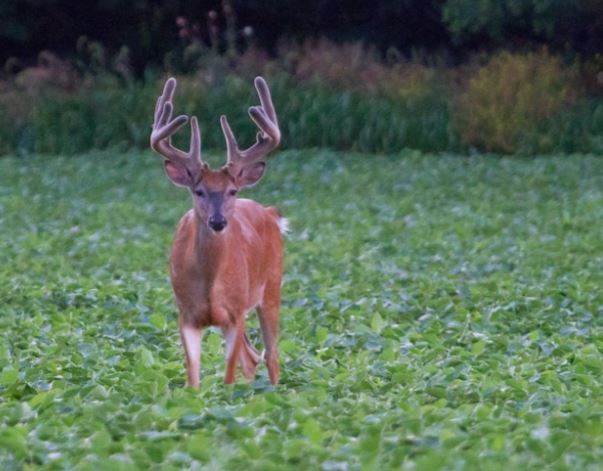
We’ll have hunters often ask if deer eat a specific type of ryegrass they have on their property.
The short answer is, yes, deer will eat all types of ryegrass, including annual ryegrass, perennial ryegrass, tetraploid ryegrass, and wild ryegrass.
Planting Ryegrass On Deer Food Plots
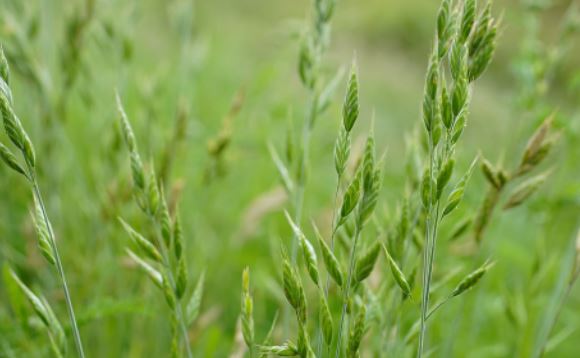
Although the fancy biologists and other deer “experts” will tell you that deer ignore ryegrass, we’re here to tell you that they’re just plain wrong.
You can plant ryegrass purposely to attract deer as part of a food plot and will almost certainly see success!
Ideally the deer in your area will already be used to having some ryegrass in their diet.
If not, hold off on introducing a high-carb food like ryegrass because it can interrupt their normal food search patterns and make them completely reliant on the ryegrass you’re planting as their new winter food source.
One of the biggest benefits of ryegrass is that it’s a “throw and grow”, meaning that it doesn’t require advanced equipment to plant.
You can find ryegrass seed at most home improvement stores.
Just score the ground with a rake or dethatcher, spread some seed, and wait – you’ll have ryegrass in a few weeks after watering.
Note that it spreads easily, so don’t plant ryegrass near other perennial or quality crops that you’re concerned with protecting.
Ultimately, ryegrass is great for hunters on a budget or weekend-warrior types who can’t tend to crops or fields all the time, but who want some predictable success in their hunting trips.
Will Ryegrass Grow Back After Being Eaten By Deer?
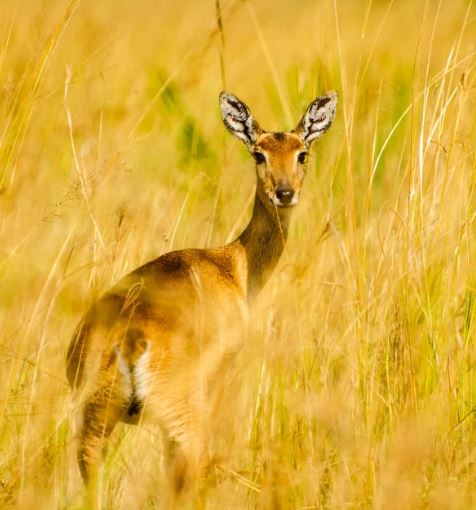
Ryegrass is a heavy reseeder, and often considered invasive.
That’s good news if you’re looking to plant it as a food plot, but be careful depending on what else you’re growing on your land.
Ryegrass will grow back each year and can withstand being eaten by deer.
Is Ryegrass Good For Deer?
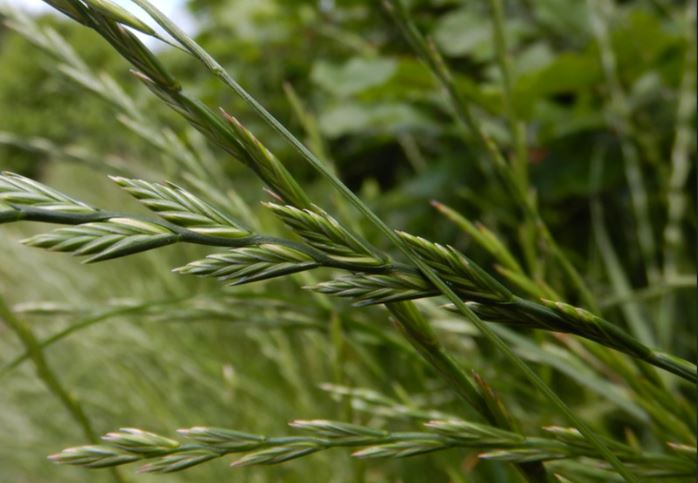
Most grasses are not good for deer because they’re not very digestible, but ryegrass is an exception.
Ryegrass contains about 70% digestible matter and 20% crude protein, providing the deer with acceptable nutrition, especially if other forage sources have been wiped out for the season.
Fertilizing ryegrass will make it healthier for deer to eat.
Once ryegrass goes from the flat (or blade) stage to the round (or stem) stage, it’s nutritional value for deer does decrease some.
Ryegrass also provides deer with the following vitamins and minerals:
- Calcium
- Phosphorous
These vitamins and minerals provide deer with many benefits.
Deer need calcium for bone, teeth, and antler growth and health as well as other bodily functions like milk production and metabolism.
Phosphorus also aids deer in body and antler growth.
Fat-Soluble Vitamins For Deer
Vitamins A, D, E, K, and calcium are fat-soluble, so they can be stored in the deer’s fat and liver to be used later as needed.
This means that calcium content from deer eating ryegrass can be “stored up” for later use, which is highly beneficial.
Water-Soluble Vitamins For Deer
Vitamin C, B Vitamins, niacin, folic acid, and phosphorous are all water-soluble, which means they cannot be stored, so they must be replaced continually.
So a deer that eats ryegrass for the phosphorous content must continue to consume foods that contain these necessary vitamins to stay healthy.
Not to mention, ryegrass contains 1g of protein and 1g of carbs from fiber, all which are beneficial to deer.
Do Deer Eat Ryegrass? Wrapping Things Up
So, do deer eat ryegrass?
The answer is yes, whenever they can!
Deer will eat all the ryegrass they can get, especially during spring when they’re hungry after a long winter and the ryegrass is the most tender.
Have any observations to add to the discussion? Be sure to let us know in the comments below.
Check our our other helpful wildlife guides while you’re here:

